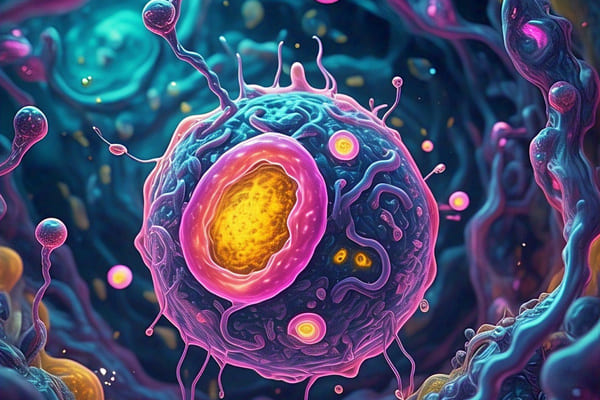Imagine if your body had a built-in mechanism to clean itself, remove damaged cells, and regenerate new ones—essentially pressing a reset button for your health. This isn’t science fiction; it’s called autophagy, and fasting is one of the most effective ways to activate it. Scientists and longevity experts are increasingly recognizing autophagy fasting as a powerful tool to slow aging, enhance cellular repair, and potentially extend lifespan. But how does it work, and what are its real benefits? Let’s break it down:

What is Autophagy?
Autophagy, meaning “self-eating” in Greek, is the body’s natural process of removing damaged cells and recycling cellular components. It’s a crucial biological function that helps maintain cellular health, prevent diseases, and even delay aging. Without autophagy, our cells accumulate waste, leading to dysfunction and age-related diseases such as Alzheimer’s, cancer, and cardiovascular conditions.
How Does Autophagy Work?
Autophagy is triggered when the body senses nutrient deprivation, particularly during fasting. When food intake is restricted, cells go into survival mode, breaking down old and dysfunctional components to produce energy and generate new cell structures. This process is controlled by key cellular pathways such as AMPK (adenosine monophosphate-activated protein kinase) and mTOR (mechanistic target of rapamycin), which regulate cell growth and energy balance.
Benefits of Autophagy Fasting
Slows Aging and Promotes Longevity
Autophagy helps remove damaged cells and regenerates new ones, reducing oxidative stress and inflammation—two major contributors to aging. Research suggests that fasting-induced autophagy can extend lifespan and improve overall health.
Boosts Brain Health
By clearing out toxic proteins and cellular debris, autophagy supports cognitive function and protects against neurodegenerative diseases like Alzheimer’s and Parkinson’s. Studies indicate that fasting can enhance mental clarity and focus.
Enhances Immune Function
Fasting activates autophagy, which helps the body eliminate harmful pathogens and boost the immune system. It aids in removing dysfunctional immune cells and generating new, stronger ones.

Reduces Risk of Chronic Diseases
Autophagy plays a role in preventing cancer, diabetes, and cardiovascular diseases by removing damaged cells and improving metabolic efficiency. Fasting also enhances insulin sensitivity and lowers inflammation.
Supports Weight Loss and Metabolism
During fasting, the body switches to fat-burning mode, leading to weight loss and improved metabolic health. Autophagy helps regulate energy production and optimize cellular function, making weight management more effective.
Improves Skin Health and Tissue Repair
Fasting-induced autophagy helps rejuvenate skin cells, leading to a more youthful appearance. It promotes collagen production, reduces signs of aging, and accelerates wound healing.
Boosts Energy Levels and Physical Performance
By optimizing mitochondrial function and removing defective cells, autophagy enhances energy production, reduces fatigue, and improves endurance. Some athletes use fasting to improve recovery and muscle preservation.
Enhances Gut Health
Fasting allows the digestive system to rest and repair, promoting a healthier gut microbiome. It reduces inflammation in the gut, helping with conditions like leaky gut syndrome and irritable bowel syndrome (IBS).
What are the 5 Stages of Autophagy?
Autophagy doesn’t happen all at once; it progresses through different stages:
- Initiation: When nutrients are scarce, the body signals the need to start breaking down damaged cells.
- Nucleation: Cellular membranes begin forming around damaged organelles.
- Elongation: These membranes grow and enclose cellular waste, forming autophagosomes.
- Maturation: Autophagosomes merge with lysosomes, where enzymes break down cellular waste.
- Recycling: The useful cellular components are repurposed, while toxins and waste are expelled.

How Fasting Activates Autophagy
Fasting is one of the most effective ways to induce autophagy. Research suggests that fasting for 16-24 hours can trigger autophagy, with deeper benefits occurring in prolonged fasts of 48-72 hours. During fasting, insulin levels drop, and AMPK is activated, signaling cells to initiate autophagy and start the cellular cleanup process.
Different Fasting Methods for Autophagy
There are several fasting strategies that can stimulate autophagy:
- Intermittent Fasting (16:8 method): A daily fast of 16 hours, followed by an 8-hour eating window.
- One Meal a Day (OMAD): Consuming all daily calories in a single meal, extending fasting to 23 hours.
- Alternate-Day Fasting: Fasting for 24 hours every other day.
- Prolonged Fasting (48-72 hours): Extended fasting for deeper autophagy activation.
- Fasting-Mimicking Diet (FMD): Low-calorie, nutrient-specific diets that mimic fasting effects.
Autophagy Fasting Benefits by Hour
| Fasting Duration | Key Benefits |
|---|---|
| 12-16 hours | Fat burning begins, insulin drops |
| 16-24 hours | Autophagy initiates, cellular repair |
| 24-48 hours | Deep autophagy, growth hormone spikes |
| 48+ hours | Advanced regeneration, inflammation reduction |
Signs of Autophagy Fasting
How do you know if autophagy is happening? While there’s no immediate way to measure it, common indicators include:
- Reduced inflammation and joint pain
- Increased mental clarity and focus
- Improved digestion and reduced bloating
- Enhanced skin health and anti-aging effects
The Science Behind Autophagy Fasting
Scientific studies support the longevity benefits of autophagy fasting. A 2016 Nobel Prize-winning study by Yoshinori Ohsumi highlighted how fasting-induced autophagy plays a critical role in disease prevention. Research from the National Institute on Aging in 2022 also found that intermittent fasting can extend lifespan and reduce age-related diseases in animal models.
FAQs:
What are the Side Effects of Autophagy Fasting?
Possible side effects include fatigue, headaches, dizziness, nutrient deficiencies, muscle loss, and digestive issues, especially if fasting is prolonged or done improperly.
How Many Fasting Hours are Best for Autophagy?
Autophagy typically begins around 16–24 hours of fasting, with stronger effects at 36–48 hours. Longer fasts may enhance benefits but should be done cautiously.
Is 16 Hours Fasting Enough for Autophagy?
While 16-hour fasting may trigger mild autophagy, stronger effects usually occur after 24+ hours. Combining fasting with exercise or keto may enhance autophagy at 16 hours.
Who Should Avoid Autophagy Fasting?
Pregnant women, breastfeeding mothers, people with eating disorders, diabetics, and those with chronic illnesses or on medications should consult a doctor before attempting autophagy fasting.
What to Eat and Drink During Autophagy Fasting?
Stick to water, black coffee, green tea, and electrolytes. After fasting, break it with nutrient-rich foods like healthy fats, lean proteins, and fiber-rich vegetables.
How Often Should You Do Autophagy Fasting?
It depends on goals and health status. Some do intermittent fasting daily (16:8), while others opt for extended fasts (24–48 hours) once or twice a month.
Autophagy Isn’t Just a Trend
Autophagy fasting isn’t just a trend—it’s a scientifically backed method to rejuvenate cells, slow aging, and enhance overall health. By incorporating fasting into your routine, you can activate your body’s natural repair mechanisms, improve longevity, and optimize well-being. Whether you choose intermittent fasting, prolonged fasting, or a fasting-mimicking diet, understanding and leveraging autophagy can be a game-changer for your health.




